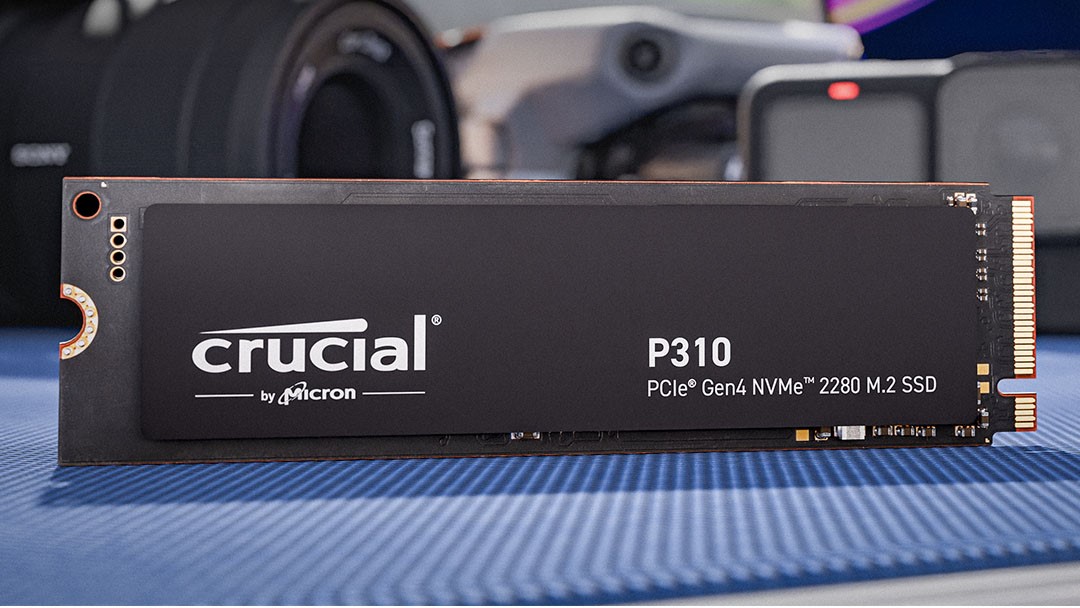
Crucial's P310 is hitting the big time, as a new full-length M.2 2280 version of the NVMe SSD has launched today. The original Crucial P310 was released earlier this year in a 2230 form factor and has become one of the best SSDs for the Steam Deck handheld PC.
The 2280 P310 maintains the same read and write speeds as its smaller older brother, advertised at 7,100 / 6,000 MB/s, reads and writes over PCIe Gen4. This represents a 40% performance boost over Crucial's P3 Plus for only a few dollars more; the P310 is launching at $88 for 500GB, $114 for 1TB, and $189 for 2TB. This pricing also comes in just a hair cheaper than the P310 2230, which has been subject to some price spikes in recent weeks but has been returned to its MSRP on Crucial's website today.
The performance match leads us to believe the 2280 keeps the same hardware combo as its 2230 twin: the Phison E27T controller and Micron's 232-layer QLC flash. Our review of the Inland TN470 provides a deeper dive into the Phison E27T, but the need-to-know information is that this Phison controller is clocked high, power-efficient, and can utilize high-power flash storage extremely well.
Micron's QLC flash, seen also in the P3 Plus, is some of the most powerful we've seen. It is designed to ensure more durability than competing QLC dies—a must-have for QLC flash, which is only rated for up to 220TB per TB of lifetime writes. This QLC pairs incredibly well with the Phison controller, resulting in a 20% improvement over the Samsung 990 EVO, according to Crucial's own PCMark tests.
Micron's QLC flash is a no-brainer for Steam Deck, where more durable flash dies may not play as well with the 2230 space limits, but it might be a turn-off for potential desktop or laptop use cases. Today's TLC flash offerings can write circles around the P310's 0.12 daily drive writes (rated over five years), so users who tend to constantly cycle their game libraries or other data should look elsewhere.
The Crucial P310 is available now in 500GB, 1TB, and 2TB sizes from Crucial's website. Like its smaller version, the 2TB will likely remain the most compelling option based on performance and price. A model with heatsinks, especially for PS5 or desktop uses, will come in the next few months.







